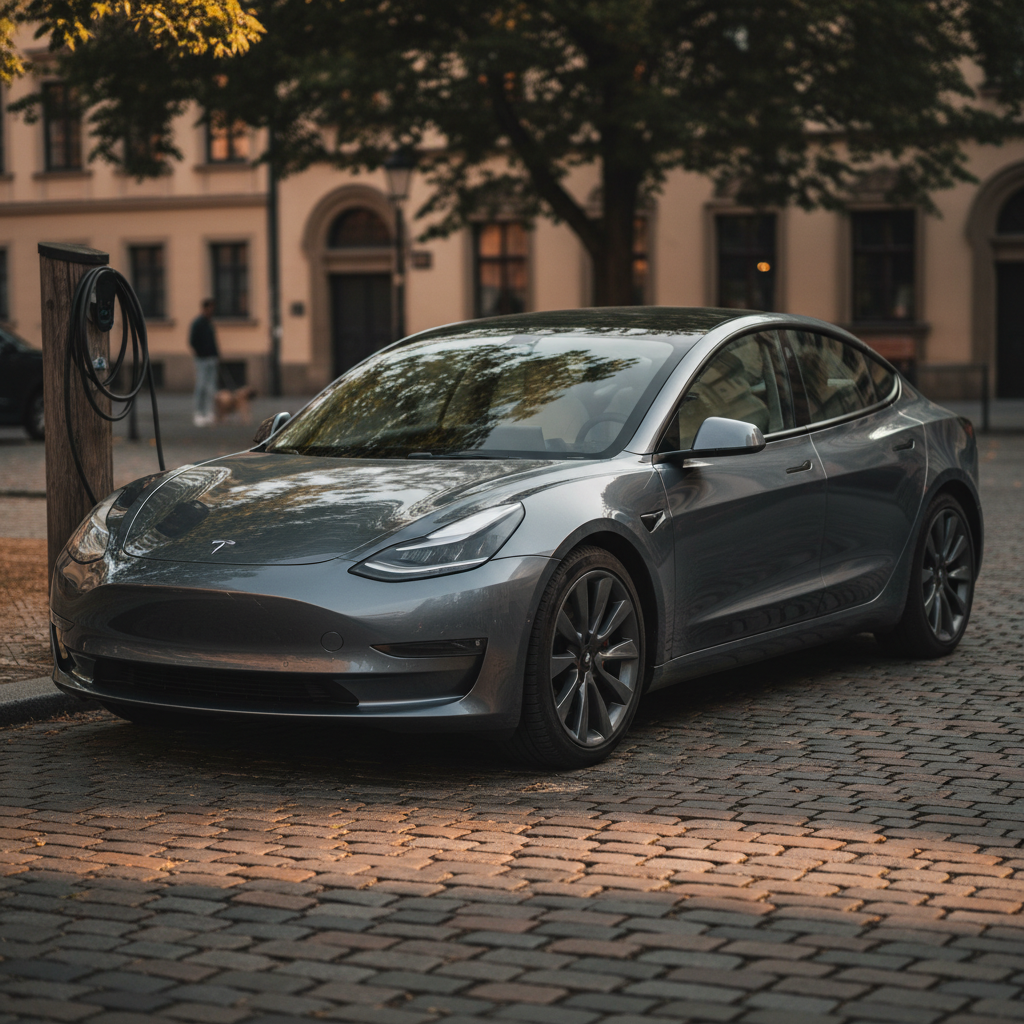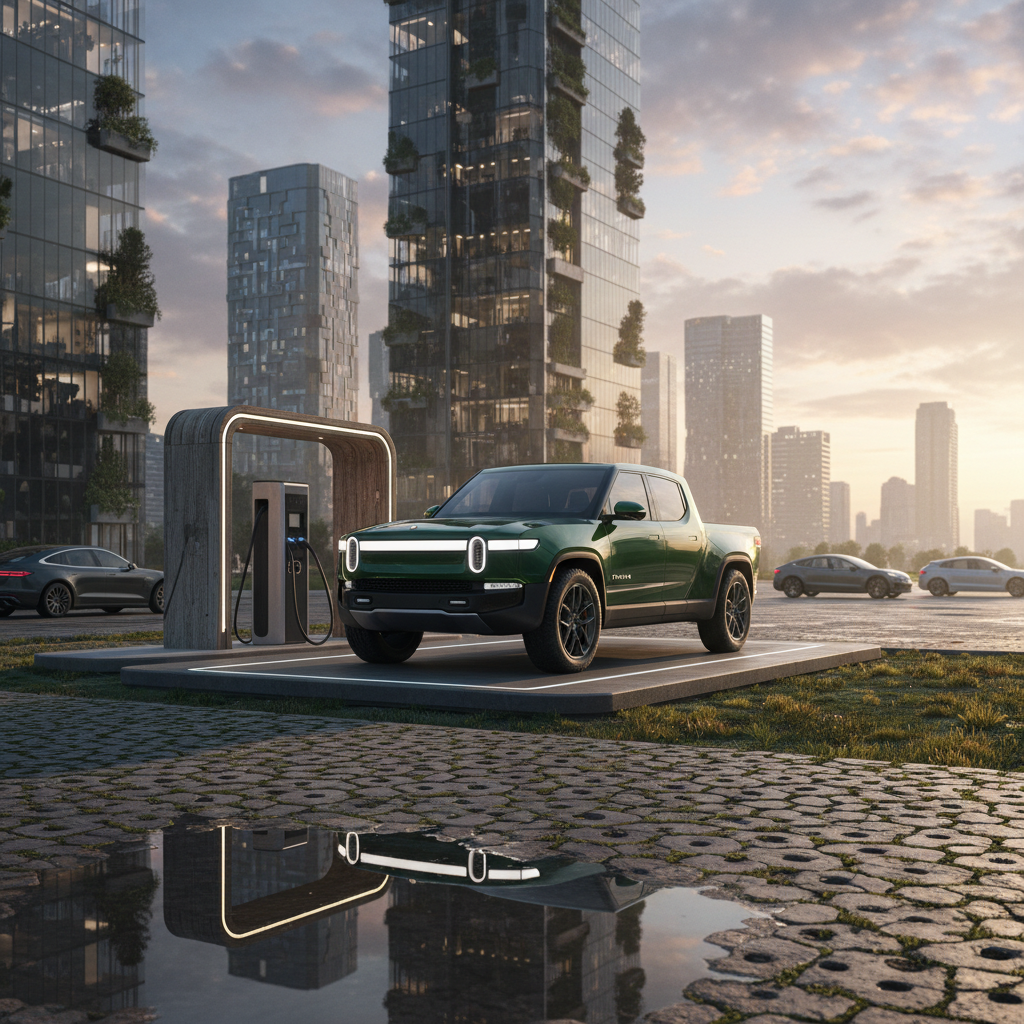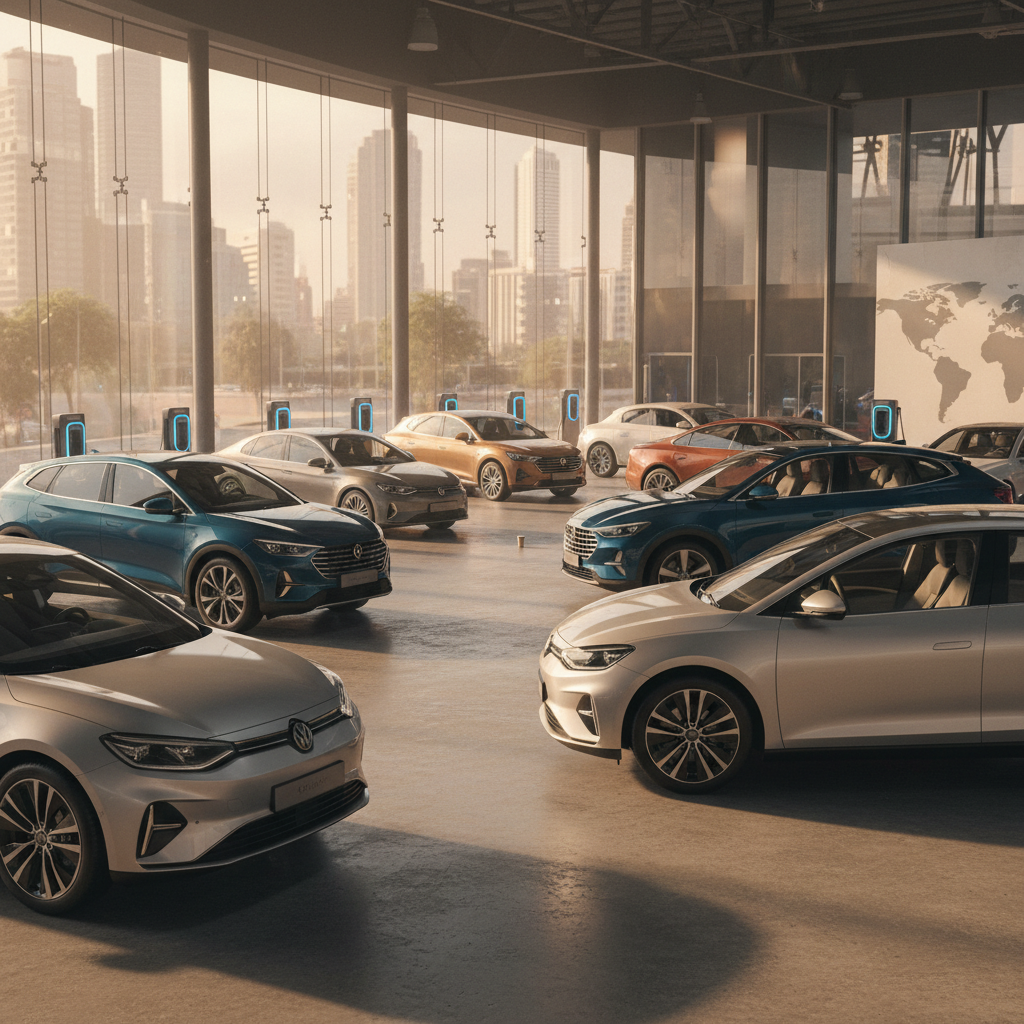If you’re typing “used SUV near me” into every car site you can find, you’re not alone. SUVs dominate today’s used market, and in 2025 you’ve got more choice than ever, gas, hybrid, and a fast‑growing list of electric SUVs that can slash your running costs if you pick wisely.
Who this guide is for
Why used SUVs are so hot right now
Over the last few years, SUVs have quietly become the default used car purchase. In many markets, more than half of the fastest‑selling used vehicles are SUVs, and they typically spend fewer days on the lot than sedans. That momentum is now colliding with a wave of relatively new off‑lease SUVs, many of them electric, hitting the market at meaningful discounts from their original sticker prices.
Used SUVs in 2025 at a glance
Why this matters for you
Should you go gas or electric for your used SUV?
Gas or hybrid SUV
- Pros: Lower upfront price than many EVs, huge selection, easy refueling, familiar ownership experience.
- Cons: Higher fuel and maintenance costs, especially as vehicles age; less quiet; no tax credits.
- Best for: Drivers who road‑trip constantly in remote areas, or don’t have consistent access to home or workplace charging.
Electric SUV (EV)
- Pros: Very low fuel and maintenance costs, quiet and quick, many late‑model EVs still under battery warranty, and deep discounts thanks to faster depreciation.
- Cons: Range and charging network matter; battery health is the big variable; upfront prices can still be higher than comparable gas SUVs.
- Best for: Daily commuting, suburban families, and anyone with reliable home or workplace charging who wants to cut running costs.
Depreciation cuts both ways
Popular used electric SUVs to keep on your radar
Exact availability near you will vary, but these nameplates are showing up in meaningful numbers on the used market.
Tesla Model Y
Still the reference point for electric crossovers: strong range, mature software, and a massive fast‑charging network. Used prices have fallen sharply compared to the early years, especially on 2020–2023 models.
Hyundai Ioniq 5 / Kia EV6
Beloved for their design and ultra‑fast charging. These compact SUVs are now common on used‑EV lists, with usable real‑world range and roomy cabins.
Kia EV9 & other 3-row EVs
If you need three rows, early EV9s and other big electric SUVs are just starting to hit the used market. They won’t be the cheapest, but they can replace a minivan and a fuel bill in one shot.
What to look for in a used electric SUV
When you search for a “used electric SUV near me,” the listings all look the same at first: glossy photos, big range numbers, maybe a screenshot of the infotainment screen. The real story is in the battery, software support, and how the SUV was used and maintained. Here’s what to focus on.

Essential checklist for a used EV SUV
1. Battery health and warranty
Ask for a <strong>battery health report</strong> or state‑of‑health percentage. Most modern EVs have an 8‑year / 100,000‑mile battery warranty; check how much coverage is left on the SUV you’re considering.
2. Realistic range for your usage
Ignore the perfect‑world number in the ad. Look at what owners actually report and subtract a buffer for weather and aging. For many commuters, 170–220 miles of real range is plenty if you charge at home.
3. Charging speed and connector
Charging speed matters for road trips and heavy use. Know whether the SUV uses CCS or NACS, what max DC fast‑charge rate it supports, and how common compatible fast chargers are on your regular routes.
4. Software support and updates
Late‑model EVs are computers on wheels. Look for vehicles that still receive over‑the‑air updates or at least have a clear support roadmap, so you’re not stuck with buggy infotainment or outdated charging logic.
5. Service history and recalls
Ask for documented service records and check for open recalls. EVs have fewer moving parts, but issues like water leaks, suspension wear, and infotainment glitches can still be expensive on premium SUVs.
6. Interior wear and usage pattern
Ride‑hail or fleet use can rack up hard miles even if the SUV looks clean in photos. Heavy seat, steering wheel, and cargo wear are clues; compare those to the odometer and the story the seller gives you.
Don’t skip the battery data
How to search for a used SUV near you
The phrase “used SUV near me” hides a lot of different shopping experiences: franchise dealers, independent lots, private sellers, and fully digital retailers. Each has trade‑offs in price, transparency, and convenience. The smartest move is to combine local search with high‑quality online platforms so you can compare real options, not just whatever happens to be parked on the nearest corner lot.
Three smart ways to shop used SUVs
Mix and match these approaches instead of relying on a single site or lot.
Local dealers & independents
Walk the lot or browse their online inventory using filters like body style, mileage, and price.
Upside: Same‑day test drives and local relationships.
Downside: Quality and transparency can vary a lot, especially around EV batteries.
Online marketplaces
Large used‑car sites let you cast a wide net and set alerts for keywords like “electric SUV,” “AWD,” or specific models.
Upside: Huge selection and pricing data.
Downside: Listings are inconsistent, some sellers share detailed info, others share almost nothing.
EV‑focused platforms like Recharged
Recharged specializes in used EVs and crossovers, including SUVs. Every vehicle comes with a Recharged Score Report that verifies battery health, pricing against the market, and overall condition, plus expert support through the whole process.
Why EV‑specific platforms help
- Start with your needs, not a model name: Seats, cargo, towing, and range matter more than badges.
- Set hard guardrails: target payment, mileage ceiling, and minimum range (for EVs) or fuel economy (for gas).
- Create saved searches for “used SUV near me” plus specific filters, AWD, year, price range, EV/hybrid vs gas.
- Shortlist 3–5 vehicles that fit your use case, then dig into battery and maintenance history before you ever schedule a test drive.
- Be ready to move quickly when a well‑documented SUV pops up; the good ones don’t sit long.
Pricing, depreciation, and total cost of ownership
Used‑SUV pricing in 2025 is shaped by two big forces: volatile overall used‑car prices and the faster depreciation of many EVs. That combination means the sticker in front of you doesn’t always reflect long‑term cost. A gas SUV might look cheaper up front, while an electric SUV could win over five years once you factor in energy and maintenance.
Gas vs electric used SUV: cost comparison snapshot
Illustrative comparison for a mainstream compact SUV, assuming 12,000 miles per year and average 2025 U.S. energy prices.
| Category | Used gas SUV | Used electric SUV |
|---|---|---|
| Typical purchase price | Lower for older, high‑mileage models; similar for 3–4‑year‑old crossovers | Often higher sticker, but many late‑model EVs are heavily discounted vs new |
| Fuel/energy costs | Gasoline costs add up quickly, especially for city driving and bigger engines | Electricity is usually cheaper per mile; home charging can dramatically cut costs |
| Maintenance | Oil changes, transmission service, exhaust, and more moving parts to maintain | Fewer moving parts; tires, brakes, and occasional coolant or software updates dominate |
| Depreciation | More predictable, slower for popular models | Historically faster, great for buyers of used EVs, less great if you plan to resell soon |
| Tax incentives | Occasional state incentives, but usually nothing major used | Some used EVs can still qualify for federal or state incentives; check current rules |
These are ballpark numbers to help you frame total cost; exact figures will vary by model, state, and how you drive.
Don’t ignore payment structure
Inspecting and test-driving a used SUV
Whether you’re driving a few blocks to a local lot or having a used SUV delivered from across the state, you need a structured way to sanity‑check it. A modern electric SUV can feel great in a 10‑minute spin even if the battery, tires, or driver‑assistance systems are quietly lining you up for big bills.

Quick inspection checklist for any used SUV
Exterior and underbody
Look for mismatched paint, panel gaps, or rust underneath. On SUVs, check hitches and roof rails for signs of heavy towing or overloading.
Tires and brakes
Uneven tire wear can signal alignment or suspension issues. On EVs, strong regenerative braking can mean pads last longer, but warping or noise is still a concern.
Cabin tech and driver‑assist
Test every screen, camera, sensor, and button. Advanced driver‑assist features are expensive to fix and are a big part of why newer SUVs command higher prices.
On‑road feel
The SUV should track straight, brake smoothly, and feel composed over bumps. Clunks or vibration under load are warning signs, especially on all‑wheel‑drive models.
Charging test for EVs
If possible, plug into a Level 2 or DC fast charger and confirm the vehicle charges at expected speed and doesn’t throw errors. This is the EV equivalent of checking oil and coolant on a gas car.
Independent inspection
For higher‑value SUVs, pay a trusted independent mechanic, or EV specialist, for a pre‑purchase inspection. It’s cheap insurance against four‑figure surprises.
Watch for software‑masked issues
Financing, trade-ins, and buying online with Recharged
The last piece of the “used SUV near me” puzzle is how you actually complete the deal. Traditionally that meant spending a Saturday in a finance office. Increasingly, it can mean shopping from your couch, lining up financing and trade‑in offers before you ever set foot in a showroom, if you need to at all.
How Recharged simplifies buying a used EV SUV
Built from the ground up for transparent, low‑stress EV ownership.
Recharged Score Report
Every vehicle on Recharged comes with a Recharged Score that includes verified battery health, pricing against comparable vehicles, and key condition details, so you’re not guessing about the most expensive part of an EV.
Financing & trade‑ins
You can apply for financing online, see terms without pressure, and get an instant offer or consignment option for your current vehicle, even if it’s a gas SUV.
Nationwide delivery & support
Browse and complete your purchase fully online, or visit the Recharged Experience Center in Richmond, VA. Either way, EV‑specialist support walks you through charging, range planning, and ownership basics.
Pre‑qualify before you shop hard
FAQ: finding a used SUV near you
Frequently asked questions
Bottom line: how to confidently pick a used SUV near you
When you strip away the noise, shopping for a “used SUV near me” in 2025 comes down to three things: being honest about how you’ll actually use the vehicle, understanding how EVs change the math on running costs, and refusing to buy blind on battery or maintenance history.
If you want low running costs and you have access to home or workplace charging, a used electric SUV can be the smartest move in the market right now, especially if you lean on tools like the Recharged Score Report to decode battery health and fair pricing. If an EV doesn’t yet fit your life, there are still plenty of great gas and hybrid SUVs out there; just make sure you’re thinking beyond the monthly payment to fuel and maintenance.
Either way, take the time to define your needs, run total‑cost‑of‑ownership numbers, and demand real data from sellers. Do that, and “used SUV near me” stops being a desperate late‑night Google search and turns into a confident, informed decision about the vehicle that’s going to carry you through the next several years.



